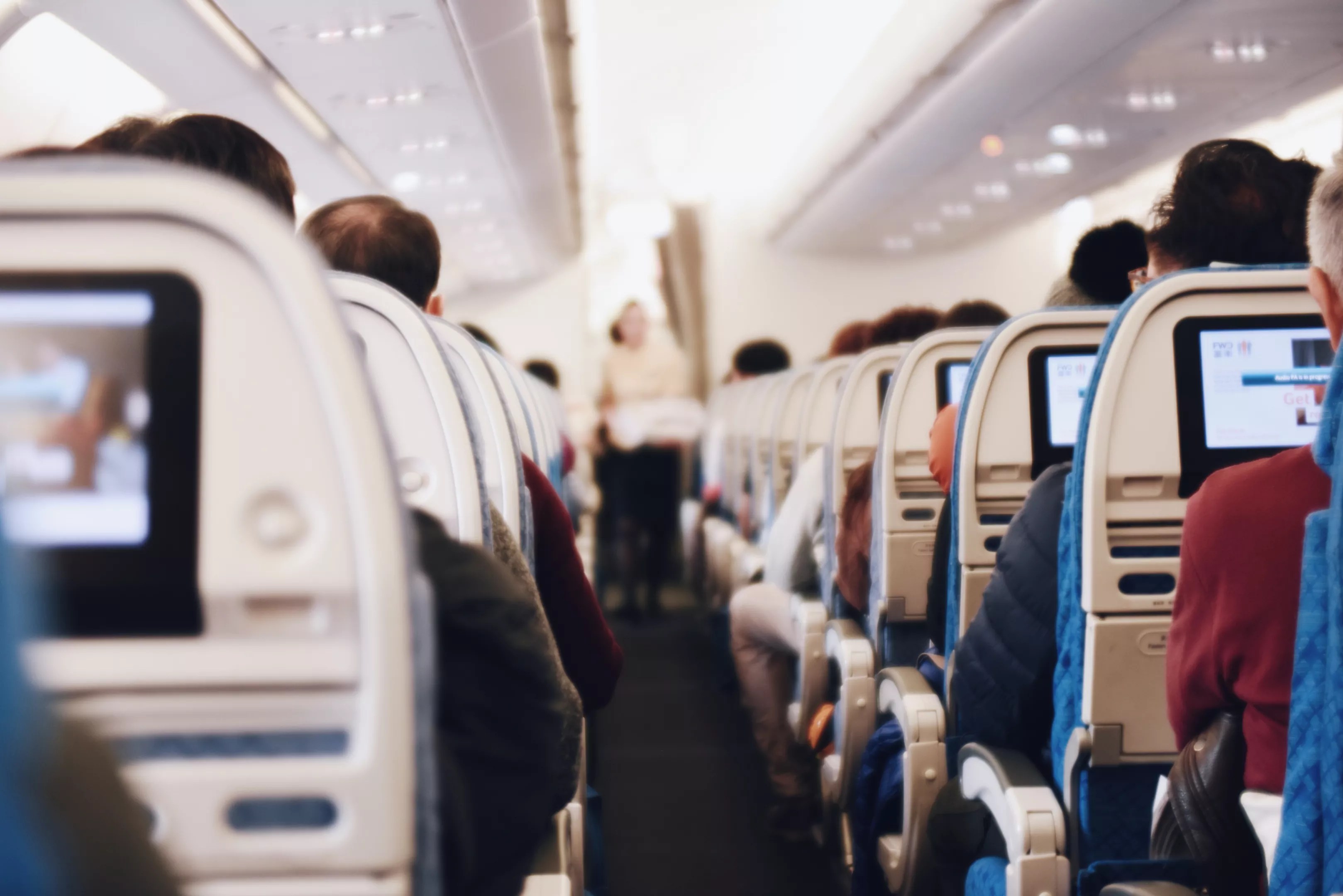
Photo by Suhyeon Choi on Unsplash

Audio By Carbonatix
Soaring some 35,000 feet in the air at speeds of up to 575 miles per hour is a terrifying prospect for many. Adding “flight rage” into the mix makes it even scarier.
Since COVID-19 hit the U.S. early last year, airlines have had to deal with passengers who are upset over on-board mask policies and others getting too sloshed to fly. Now, many have noticed the aircraft cabin has transformed into a gauntlet, with fights regularly erupting over public health.
But experts believe that taking certain steps could help to discourage in-flight fights.
In August, the Federal Aviation Administration (FAA) announced it had already fined disruptive airplane passengers more than $1 million in 2021. As of last week, there’s been 5,033 “unruly passenger reports,” and the number of investigations has skyrocketed from 183 in 2020 to 950 this year.
The FAA also recently announced it has referred 37 disorderly passengers to the FBI for criminal review, Reuters reported.
“Let this serve both as a warning and a deterrent: If you disrupt a flight, you risk not just fines from the FAA but federal criminal prosecution as well,” said FAA Administrator Steve Dickson, according to that outlet.
Last week, the Justice Department announced that a passenger who’d flown with Dallas-Fort Worth-based airline American was charged after he’d allegedly assaulted a female flight attendant during an Oct. 27 flight. The Dallas Morning News reported he’d punched the woman multiple times in the face, forcing the plane to divert so she could get treated at a hospital for broken bones.
Earlier this month, a Delta airplane had to be diverted to Dallas following a “customer disturbance.” And this summer, an American Airlines passenger flying from Dallas-Fort Worth to North Carolina bit a flight attendant and had to be restrained.
My Atlanta/LA flight diverted to Dallas to discharge an unruly passenger. Ah, the unfriendly skies! pic.twitter.com/FUX6RKbn9I
— Bill Moseley (@choptopmoseley) November 1, 2021
What’s happening on flights these days is “road rage transferred into an airplane,” said Dr. James M. Honeycutt, a lecturer in organizational behavior, coaching, and consulting in the Naveen Jindal School of Management at the University of Texas at Dallas.
“This reflects anxiety.” – Dr. James Honeycutt
He noted that throughout the pandemic, people have had to face increased restrictions in terms of mask usage, social isolation and now, vaccine mandates.
“I think that as we have started to open up more, people are unleashing a repressed anxiety – this reflects anxiety,” he said.
While each incident is unique, the perpetrators likely share certain personality traits.
Those who are especially prone to in-flight outbursts have personalities low in conscientiousness, openness and agreeableness, Honeycutt said. They take little interest in others and don’t care about how others feel.
Airplane assailants likely rank high in neuroticism, characterized by sadness, moodiness and instability, he said. Many would exhibit “dark triad” personality traits: narcissism, Machiavellianism and especially psychopathy (such as callousness, insensitivity and lack of empathy).
Some angry passengers could be coping with serious stress in their personal lives, Honeycutt said. They might feel plagued by the economy and product shortages and worried about rising costs, including in transportation and gas.
Cramped cabins could also make people more likely to lash out, he added.
Honeycutt does have a “radical” potential solution, though: Airlines could begin to implement music therapy by playing symphonic songs as people enter the plane and during landing. Classical music, such as that by Mozart, alters the brain’s alpha waves and has a calming effect, he said.
“Even people who hate classical music are positively affected with background Mozart music,” he said.
Research has shown that symphonic instrumental music with a slower rhythm can lower stress levels, increase relaxation and help encourage positive coping skills, Honeycutt said. There’s also evidence that it can lower blood pressure.
People’s moods subconsciously match the music they’re hearing, he said. Since many airlines have stopped offering alcohol during the pandemic, Honeycutt believes that it would help to substitute it with soothing tunes.
“Music has been called the universal language,” he said, “and so I really do endorse that.”